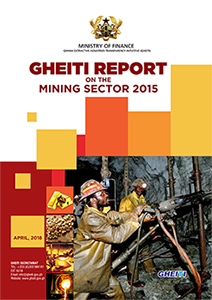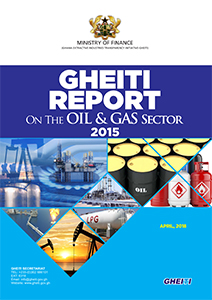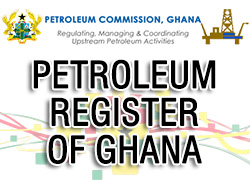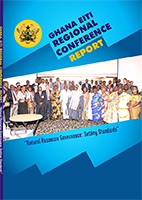What are the Extractive Industries?
For the purpose of EITI, we define the extractive industries as the oil, gas, and mining industries.
What is the Extractive Industries Transparency Initiative (EITI)?
The Extractive Industries Transparency Initiative (EITI) is about companies disclosing what they pay and Governments disclosing what they receive: a Global Standard for Local Transparency. The EITI is a coalition of governments, companies, civil society groups, investors and international organizations. It supports improved governance in resource rich countries through the full publication and verification of company payments and government revenues from oil, gas and mining.
Why is the Extractive Industries Transparency Initiative necessary?
- Revenues from the extractive industries should be an important engine for economic growth leading to sustainable development.
- Some countries rich in oil, gas and minerals have under-performed relative to other countries without natural wealth. There is a close correlation between the countries rich in natural resources and the countries with high levels of poverty.
- Transparency over payments and revenues increases accountability and therefore the likelihood that the revenues generated by the development of natural resources are used in an efficient and equitable manner. It can also reduce the risk of diversion or misappropriation of resources.
Why focus on Extractive Industries?
- Extractive Industries are important in over 50 developing countries, home to some 3.5 billion people.
- There is nothing intrinsically wrong with extractive industries, but the high-risk, high cost and uncertain nature of exploration, coupled with a long gestation before profits are realised and the finite nature of resources, makes financial management of the sector difficult.
- Companies investing large amounts of resources in natural resource extraction need to be assured of a stable, reliable environment for their investments.
- Ensuring that revenues from natural resources make it into government budgets for public sector expenditure (e.g. on health, education etc.), is key to reducing poverty, promoting democracy and reducing the risk of conflict.
Why is transparency essential to tackle corruption?
- The lack of accountability and transparency can exacerbate poor governance and lead to corruption, conflict and poverty.
- Transparency needs to be linked to efforts to improve financial management and to tackle corruption. Without transparency, donors and International Financial Institutions will be less willing to engage in these countries and companies may be cautious about investing in an opaque (or--worse--corrupt) business environment.
- It is for the individual populations of a country to hold their government to account for the use of the resources.
How does it work?
To implement EITI, a country needs to meet or exceed the EITI Criteria.
Who will benefit from the Initiative?
- Increasing transparency and knowledge of revenues will empower citizens and institutions to hold governments to account for the right use of these resources. Mismanagement or diversion of funds away from sustainable development purposes will become more difficult.
- Demonstrating transparency and accountability should also benefit developing and transition economies by improving the business environment, helping them to attract foreign direct investment.
- Transparency and good governance are often pre-conditions for access to international financial institution lending or donor programmes
- Responsible companies stand to benefit from a more level playing field, a more predictable business environment and better prospects for security of their investments.
- Companies will also be able to demonstrate the contribution they make to an economy (often they are taxed twice – by the state and then by expectations of government-like services
Who is participating in EITI?
EITI participants include government, private sector, and civil society representatives. For details of EITI participants, please see the Supporters page.
Is the G8 supporting EITI?
The G8 has made statements of support for EITI at Evian (2003), Sea Island (2004), Gleneagles (2005), Heiligendamm (2007), and most recently at Hokkaido Toyako (2008).
What is the World Bank Group's role in EITI?
The World Bank Group has committed a team in the Bank to support EITI. The Bank will also support several governments in implementing EITI, as well as administering the multi-donor EITI trust fund.
Will companies be at a competitive disadvantage if they support EITI?
No. The host government and companies will discuss and agree the terms of the disclosure to ensure commercial confidentiality is not breached. There is a key role for host governments to create a climate for disclosure and to request companies operating in their territory to disclose data.
Will EITI create a burden without actually tackling the problem of corrupt payments, thereby punishing the responsible players?
We don’t expect EITI to close all loopholes for non-responsible company or government behaviour. To a certain extent, we have to rely on laws to detect criminal activity. The OECD anti-bribery convention helps in this regard. EITI would reward the responsible players by helping them deflect criticism.
How can companies participate in EITI?
Guidance for companies is provided in the Business Guide. You can also find information about Company Support of implementation here.










